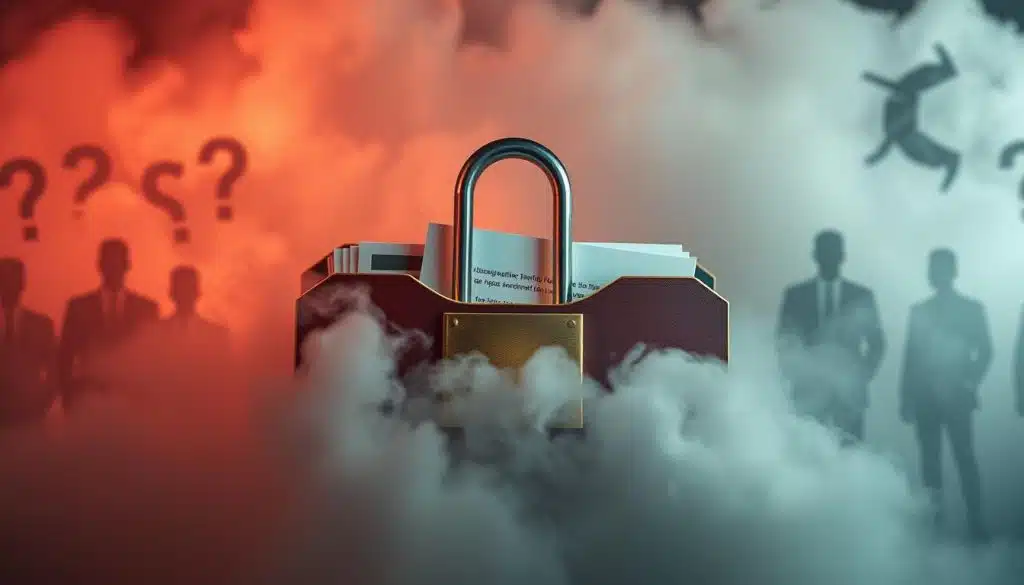Did you know that 9 out of 10 ASWB licensing exams have questions about confidentiality? As a social worker, knowing the rules of client confidentiality is key. It’s not just about ethics; it’s also crucial for passing the exam.
Confidentiality is a big deal in social work, but it’s not always absolute. There are times when social workers must break confidentiality to protect their clients or others. Knowing when to do this is vital for good care and passing the ASWB exam.
Confidentiality is key in social work. Social workers must protect their clients’ privacy. They need to get consent before sharing any information.
Clients have the right to control their personal info. Social workers must respect this. They keep records safe and let clients see their files.
Social workers need to tell clients about the purpose and risks of sharing info. Clients can choose to participate or withdraw consent anytime.
Keeping records safely is crucial. Social workers must protect client info from unauthorized access. Clients can access their records, and social workers help with this.
Technology adds challenges to confidentiality. Social workers must use secure channels and educate clients about digital risks. They also need to have clear tech policies.
| Statistic | Percentage |
|---|---|
| Social Workers using email or text messaging for client communication | High, contributing to increased risks to confidentiality |
| Social Workers using encrypted email services and secure teletherapy platforms for protecting client confidentiality | Increasing to prevent unauthorized access |
| Social Workers establishing clear policies on the use of text messaging to ensure sensitive information is not compromised | Rising to maintain confidentiality |
| Social Workers educating clients on the risks of unsecured digital communication channels | Significant, emphasizing informed consent |
Keeping client info private is a key part of social work mandated reporting. By following these principles, social workers can gain trust and respect. They also make sure clients understand the limits to confidentiality.
As social workers, we have a big responsibility to protect those we help. We must report any suspected child abuse, neglect, or abuse of the elderly or disabled. This includes abuse by the person we’re helping or someone else. Not reporting can harm victims, is unethical and is subject to Censure by the Social Work Board.
We also have a duty to warn if someone we’re helping threatens to harm someone else. This means we must break confidentiality to stop harm. But, we don’t have to report domestic violence unless a child is hurt.
It’s key to understand these rules to pass the ASWB exam and do our job right. By reporting abuse and threats, we protect the people we help. This is our duty to report.
| Reporting Requirement | Explanation |
|---|---|
| Child Abuse and Neglect | Social workers are mandated reporters, regardless of who the perpetrator is. |
| Elder/Dependent Adult Abuse | Social workers are mandated reporters, regardless of who the perpetrator is. |
| Duty to Warn | Social workers must take action when a client makes a credible threat of imminent, serious violence towards an identifiable victim. |
| Domestic Violence | Social workers are not mandated reporters for domestic violence, unless a child is physically harmed. |
By knowing our mandatory reporting duties and duty to warn, we can do our job well. We protect the people we help.

As social workers, we value our clients’ trust and privacy deeply. Yet, there are times when we must break confidentiality. Knowing these limits is key for passing the ASWB exam and practicing ethically.
Social workers might have to share client info due to court orders or subpoenas. We must follow these orders but can fight for limited disclosure. This way, we protect our clients’ privacy as much as possible.
When working with minors, parents usually have the right to see their child’s records. We must balance the child’s privacy with the parent’s rights. Discussing these limits and consent is important at the start.
Confidentiality doesn’t end when a client dies. We can only share a deceased client’s records with the estate’s executor’s permission. It’s our duty to keep our clients’ privacy, even after they’ve passed.
| Confidentiality Limits | Explanation |
|---|---|
| Under the Child Abuse and Neglect Reporting Act | Social workers must report suspected child abuse or neglect, even if it means breaking confidentiality. |
| Threat to Self or Others | If a client threatens serious harm to themselves or others, we must warn and protect the intended victim(s). |
Understanding confidentiality limits is tough but crucial for passing the ASWB exam and being ethical. By knowing these boundaries, we can offer top care and support to our clients while meeting our professional duties.

Child abuse, a heartbreaking reality in many communities, often goes unreported due to various factors, including fear, ignorance, or disbelief regarding the severity of the situation. Recognizing and reporting child abuse is not only vital for the safety and well-being of vulnerable children but is also a moral and legal obligation for many professionals and citizens alike.
Whether working in education, healthcare, or social services, individuals must understand their role in identifying signs of abuse and the steps necessary to take action. The failure to report child abuse can have devastating consequences, allowing the cycle of violence and neglect to continue unchecked.
Legislation surrounding child protection mandates that certain professionals are obligated to report suspected cases of abuse and neglect. This duty to report social work is a fundamental component of safeguarding children, ensuring that cases are evaluated by appropriate authorities who can provide the necessary intervention.
Promoting education around recognizing and reporting child abuse can strengthen communities, ensuring that everyone is equipped with the knowledge to recognize the signs and the courage to act.
As social workers, we must keep our clients’ secrets safe. This means not sharing info about substance abuse or illegal activities without their okay. Even if family members ask, we can’t share without the client’s consent.
We also have to be careful in our professional talks. When we talk to supervisors or colleagues, we shouldn’t share client details. Sometimes, we face tough choices between keeping secrets and protecting others. In these cases, we need to think carefully and talk to our team.
To handle limitations to confidentiality and limits to confidentiality in therapy well, we follow strict rules. We encrypt client data and use secure ways to talk to them online. This keeps their info safe from prying eyes.
By focusing on maintaining confidentiality and using strong security, we meet our ethical duties. We also keep our clients’ trust.
“Protecting client confidentiality is a cornerstone of ethical social work practice. It requires vigilance, technological safeguards, and a deep understanding of the boundaries that must be respected.”
Knowing the limits of confidentiality is key for passing the ASWB exam and doing good social work. It’s important to tell clients about confidentiality rules, know when to report abuse, and keep client secrets even after they pass away. Social workers also need to handle court orders, work with kids, and think about special cases.
Studying the NASW Code of Ethics and doing practice questions helps remember these important points. By following the values of service, justice, and dignity, social workers can make choices that protect privacy and keep the profession respected. Keeping the NASW Code of Ethics in mind is not just for the exam. It guides social workers to act with care and kindness.